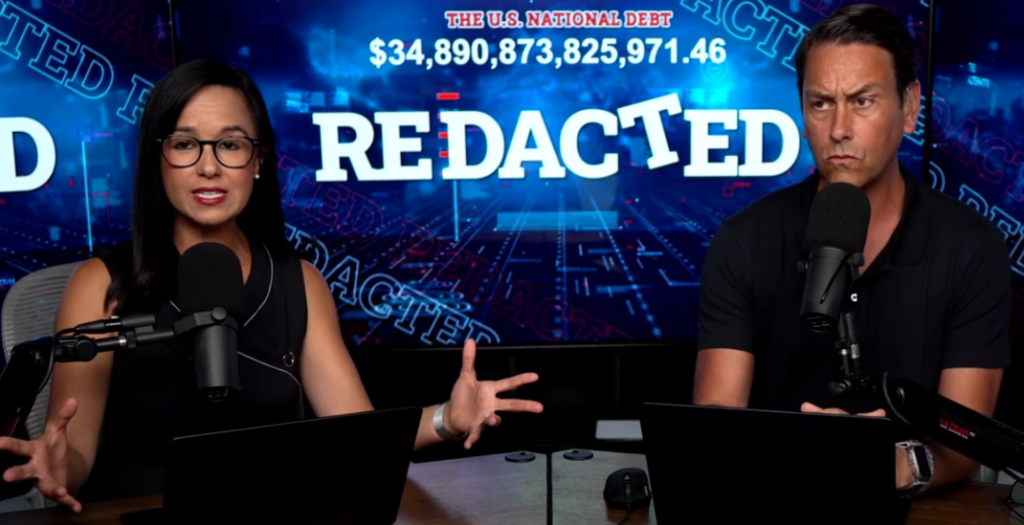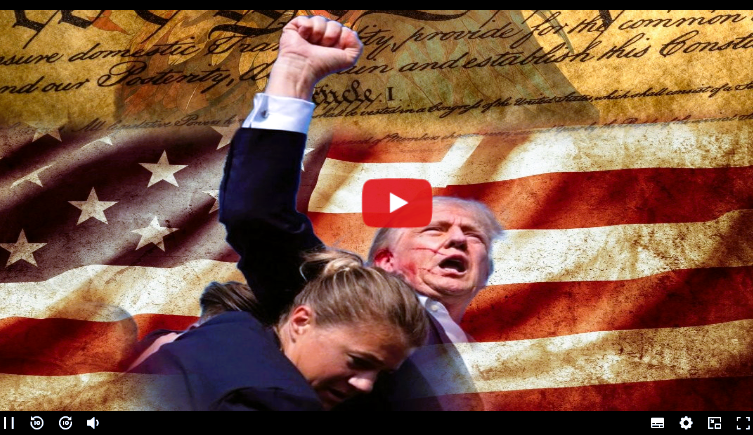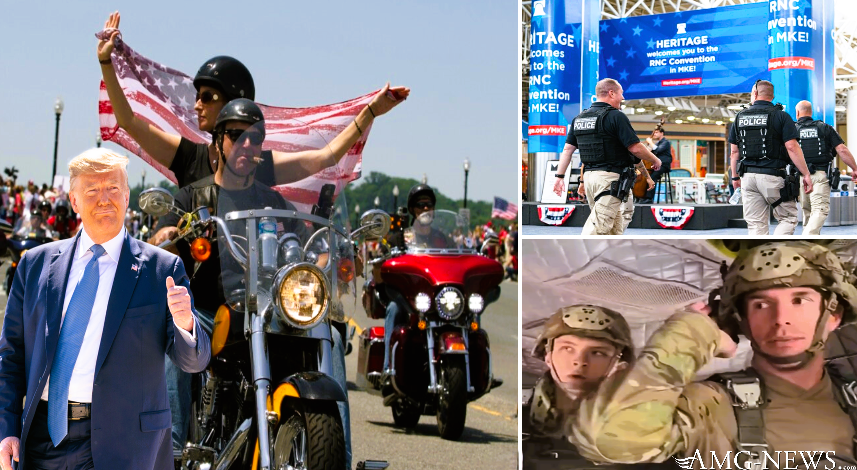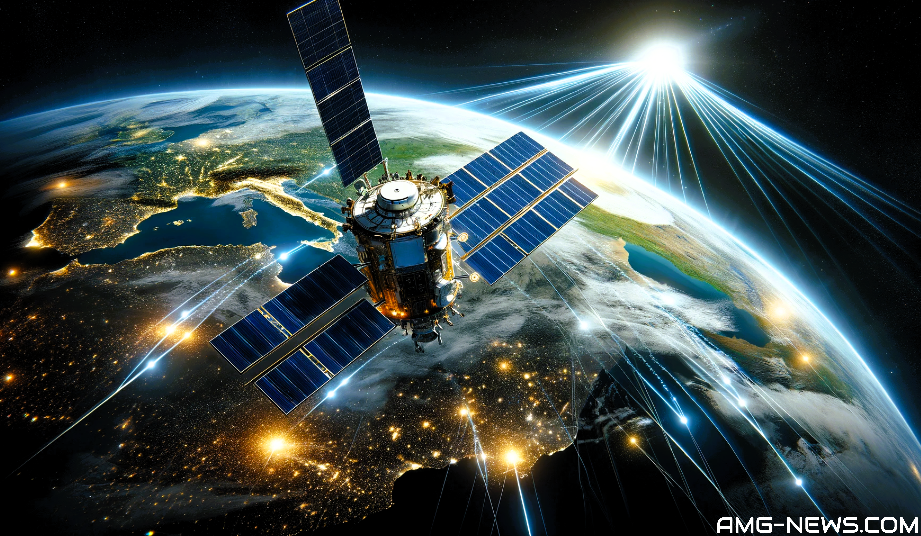By Medeea GreereJuly 16, 2024No Comments6 Mins Read
FacebookTwitterTelegramWhatsApp

SHARE

BREAKING! Media Silence on Trump Assassination Attempt: Morning Joe & Daily Show Cancel Coverage – Redacted Video
Ready to uncover the truth? Sick of the lies? Join our Telegram Channel now. It’s time for the real story! My gratitude to all my readers!
In an unprecedented move, major media outlets have shown an alarming inability to address one of the most shocking events in recent political history: the assassination attempt on President Donald Trump.
With Morning Joe abruptly calling off their show and The Daily Show canceling their planned RNC coverage, the media’s silence is deafening, raising significant questions about bias, responsibility, and the role of journalism in democracy.
The Deafening Silence: A Crisis of Journalism
The attempted assassination of a sitting president is a monumental event, one that would typically dominate headlines, evoke widespread coverage, and prompt serious discussions about security, political stability, and the broader implications for the nation. However, the recent attempt on President Trump’s life has been met with an unsettling quiet from mainstream media outlets.
Morning Joe and The Daily Show: A Case Study in Media Bias
Two prominent shows, MSNBC’s Morning Joe and Comedy Central’s The Daily Show, both canceled their respective broadcasts that were supposed to cover the Republican National Convention.
This decision not only shocked viewers but also highlighted a troubling trend in media behavior. When faced with the task of covering an event that doesn’t fit their narrative or might challenge their audience’s views, they simply chose to remain silent.
- Morning Joe: Known for its critical stance on Trump, the cancellation of their show amidst such a significant event speaks volumes about their editorial stance and priorities. The show, which often touts its commitment to truth and journalistic integrity, opted out of an opportunity to provide objective coverage of a critical issue.
- The Daily Show: While traditionally a satirical news program, The Daily Show has also been a platform for political commentary. The decision to cancel their RNC coverage amidst the assassination attempt further underscores the selective nature of their content.
A Troubling Trend: Media’s Selective Outrage
This selective coverage isn’t just a fluke; it’s indicative of a larger problem within mainstream media. The principle of “if you can’t say anything nice, don’t say anything at all” seems to have been adopted by these outlets, choosing silence over objective reporting. This is not just about one event or one president; it’s about the integrity and reliability of the media as a whole.
The Importance of Objective Journalism
Journalism’s fundamental role is to inform the public, providing them with the facts they need to understand and engage with the world around them. When media outlets choose silence over coverage, especially on matters as grave as an assassination attempt, they fail in their duty to the public.
- Impact on Public Perception: The lack of coverage can lead to misinformation, speculation, and conspiracy theories filling the void left by credible journalism.
- Erosion of Trust: Continuous selective coverage erodes public trust in media institutions. People begin to question what else is being hidden or selectively reported.
- Political Polarization: Such actions contribute to further polarization, as different segments of the population receive vastly different narratives.
A Deep Dive into Media Responsibility
Historical Context: Media Coverage of Presidential Threats
Throughout history, the media has played a crucial role in covering threats to presidential security, providing the public with detailed reports and analysis. From the assassination of John F. Kennedy to the attempted assassination of Ronald Reagan, the media has traditionally been at the forefront, ensuring that the public is informed and engaged.
- Kennedy Assassination: The media’s extensive coverage helped the nation process the tragedy, while also prompting critical discussions on security and political stability.

- Reagan Assassination Attempt: The swift reporting and detailed analysis provided by the media played a crucial role in informing the public and addressing security concerns.
Comparing Past and Present
The stark difference in coverage between these historical events and the recent attempt on President Trump’s life highlights a significant shift in media priorities. The lack of coverage today is not just a lapse; it’s a deliberate choice, reflecting deeper issues within the media landscape.
SEE ALSO: Divine Dialogue: Mysterious Secret Phrase UNLOCKS the Power to Have Every Prayer Answered Instantly!
In the absence of coverage from traditional media outlets, new media platforms and independent journalists have stepped up to fill the void. Social media, blogs, and independent news websites have become crucial sources of information, providing detailed reports and fostering discussions on topics that mainstream media chooses to ignore.
- Social Media’s Influence: Platforms like Twitter and Facebook have become vital in disseminating information quickly and widely, often bypassing traditional media gatekeepers.
- Independent Journalism: Independent journalists and bloggers have taken on the mantle of reporting on sensitive and critical issues, often providing in-depth analysis and alternative perspectives.
The Public’s Role: Demand for Accountability
The media’s silence on such a significant event should prompt a public outcry. As consumers of news, it is crucial for the public to demand accountability and transparency from media outlets.
- Active Engagement: Engage with media platforms, question their coverage choices, and demand explanations for their silence.
- Support Independent Media: By supporting independent journalists and platforms, the public can help ensure a diverse range of voices and perspectives in the media landscape.
- Critical Consumption: Develop a critical eye when consuming news, cross-referencing multiple sources to get a complete picture of events.
HOME RETREAT | HOW TO RENEW YOUR CELLS IN 7 DAYS

The assassination attempt on President Donald Trump and the subsequent media silence marks a pivotal moment in the history of journalism. The actions of Morning Joe and The Daily Show are not just about their specific decisions but are symptomatic of a broader issue within the media industry. As consumers of news, it is imperative to demand better, support diverse voices, and strive for a media landscape that prioritizes truth and objectivity over bias and selective coverage.
This article aims to shed light on this critical issue, urging a collective reflection on the role of media in our society and the importance of maintaining journalistic integrity. The public deserves better, and it’s time to hold media outlets accountable for their silence and bias.
In an age where information is power, the responsibility of the media to inform and engage the public cannot be overstated. The attempted assassination of a sitting president should have been a wake-up call, a moment for the media to step up and fulfill its duty. Instead, the silence has been deafening, and it’s up to the public to demand change.










